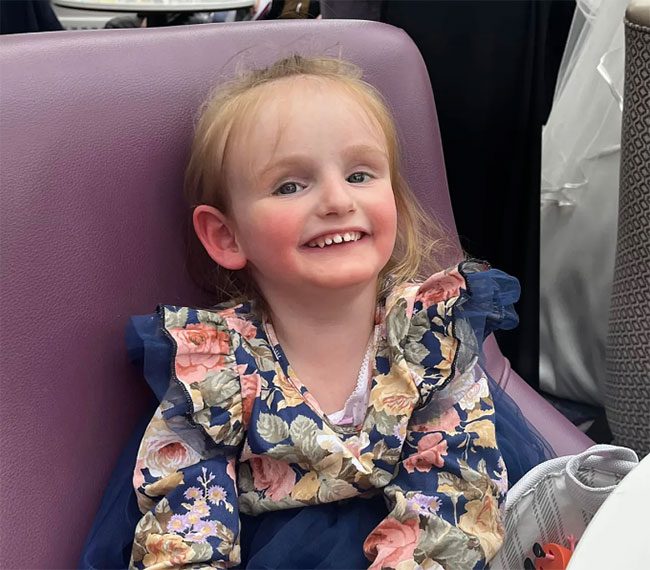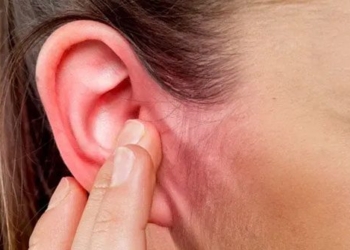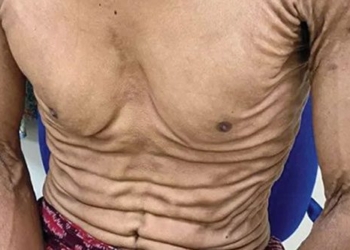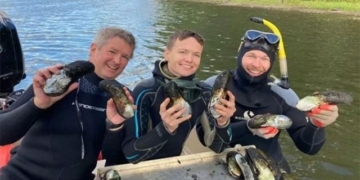Faith, a 5-Year-Old Girl, has a rare gene mutation that causes her to suffer from multiple illnesses simultaneously, a condition estimated to occur in only one in a billion people.
Her mother, Rachael Duff, who lives in Ballyclare, Northern Ireland, states that Faith is currently using a wheelchair, is in stage three kidney disease, and has a bladder that does not function effectively. Due to the lack of information about her condition, doctors cannot predict what will happen as Faith grows older.

Five-year-old Faith has a rare gene mutation causing multiple illnesses. (Photo: Rachael Duff)
Faith was born prematurely in April 2018 at just 30 weeks and 6 days, with shiny blonde hair. Immediately after birth, she was taken to the neonatal unit at the Royal Victoria Hospital for respiratory support. Faith had a hole in her heart and a small bleed on her brain, but she progressed well and was discharged in May, a month before her due date.
18 months later, she had missed nearly all developmental milestones typical for a child her age. Faith could not sit up steadily and was unable to walk. Initially, doctors suspected she had cerebral palsy, but a CT scan ruled out this possibility.
“Her upper body seemed disconnected from her lower body. The doctors performed an MRI on her spine and discovered that her kidneys were swollen and her bladder was on the verge of bursting,” Duff recounted.
During catheterization, the amount of waste produced was so significant that “everyone in the room was soaked.”
Some time later, Duff received a call from the doctor, a moment that still haunts her today. The medical team found lymph nodes in Faith’s abdomen, initially suspecting it was a tumor. However, further testing continued to rule this out. The doctors still did not know the cause of Faith’s numerous health issues until genetic testing results arrived.
According to the tests, Faith has a pathogenic variant of the extremely rare congenital ELOVL1 gene, causing lower limb dystonia, stage three kidney disease, skin issues, and neurogenic bladder. Reports indicate that only four similar cases to Faith have been documented globally. She has been used by specialists as a case study, referred to as “Child A.”
Upon receiving the diagnosis, Faith’s parents posed three questions: How will Faith’s condition develop, will it affect her lifespan, and where did it come from?
“For each question, the doctor’s answer was ‘We don’t know’ accompanied by a shake of the head,” Duff said.
Experts sent the young mother a link to a medical journal via email, filled with heavy knowledge and many new concepts. However, there was no information available on Google, no forums for parents, or support groups on Facebook.
Recently, Faith’s family received good news: the hole in Faith’s heart has closed naturally without the need for surgery. They have established a fund to address Faith’s ongoing treatment needs, including physical therapy and mobility support as she grows.





















































